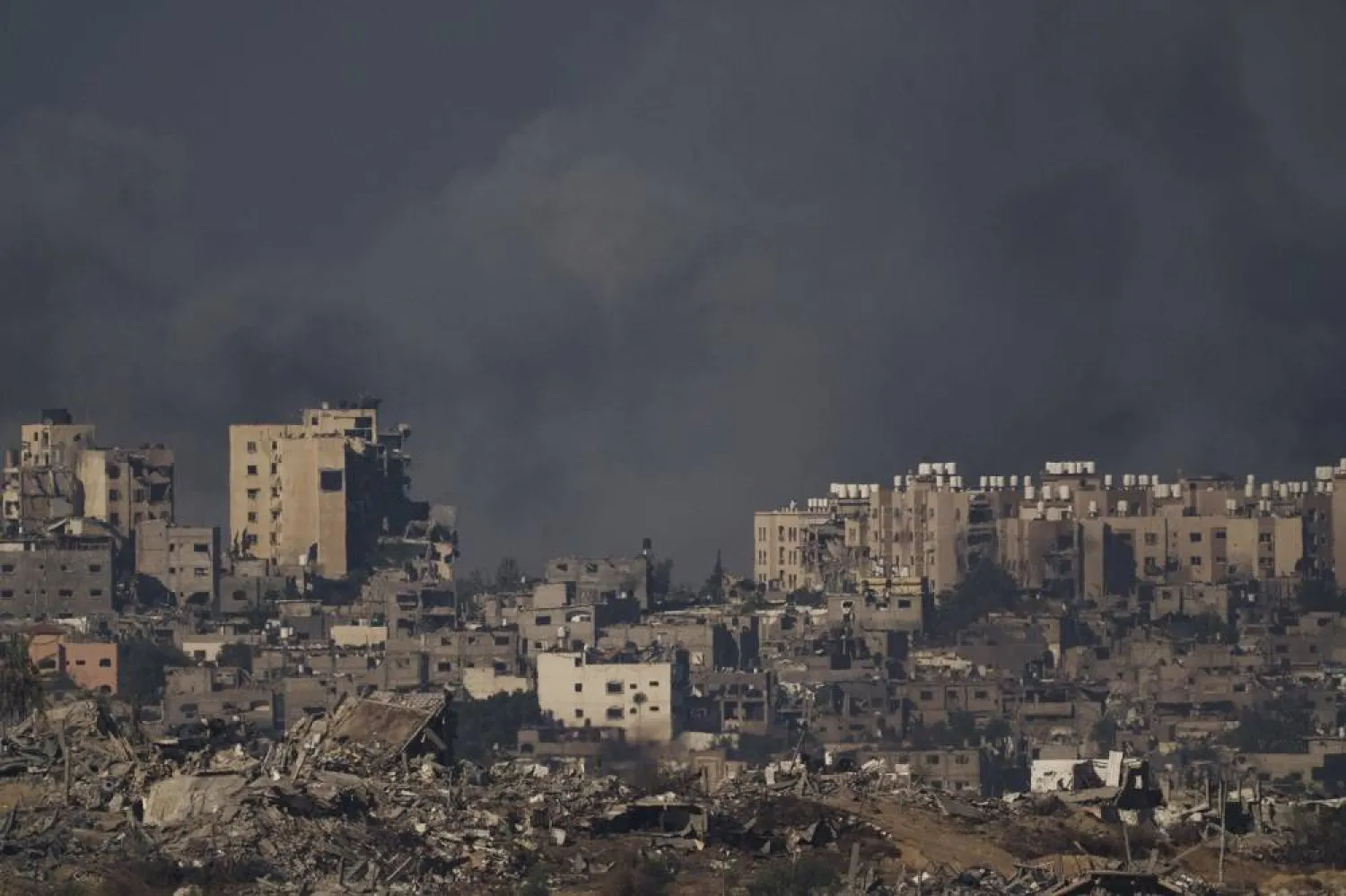South African President Cyril Ramaphosa accused Israel of war crimes and acts "tantamount to genocide" in Gaza during a virtual meeting of leaders of developing countries including Russia's Vladimir Putin and China's Xi Jinping on Tuesday. Ramaphosa also condemned Hamas for its attack on Israeli civilians that sparked the conflict and said both sides were guilty of violating international law.
"The collective punishment of Palestinian civilians through the unlawful use of force by Israel is a war crime," Ramaphosa said at the start of the meeting of leaders and top diplomats from the BRICS bloc of countries. "The deliberate denial of medicine, fuel, food and water to the residents of Gaza is tantamount to genocide."
"In its attacks on civilians and by taking hostages, Hamas has also violated international law and must be held accountable for these actions," Ramaphosa said.
Putin and Xi struck more cautious notes, calling for a ceasefire and the release of civilian hostages but not launching the same level of criticism of either side as Ramaphosa.
Also joining the meeting were leaders and officials from fellow BRICS members Brazil and India, and from Saudi Arabia, Argentina, Egypt, Ethiopia, Iran and the United Arab Emirates, which are set to join the bloc in January.
Ramaphosa chaired the "extraordinary meeting" and made the opening remarks because of South Africa's position as current chair of BRICS.
Putin said there was a "humanitarian catastrophe" unfolding in Gaza and it was "shocking to watch how surgeries are performed on children without anesthesia." He again blamed the crisis on what he called failed diplomacy by the United States.
"All these events, in fact, are a direct consequence of the US desire to monopolize mediation functions in the Palestinian-Israeli settlement," Putin said while appearing on teleconference from the Kremlin. He called for a ceasefire in Gaza, the freeing of hostages and the evacuation of civilians from the Gaza Strip.
Putin's comments were in line with Russia's careful approach to the Israel-Hamas war, which may present an opportunity for it to advance its role as a global power broker. Putin proposed last month that Moscow could mediate in the conflict due to its relationships with both Israel and the Palestinians. He said Tuesday that the BRICS bloc could play "a key role" in finding a political settlement.
Putin has condemned the Oct. 7 attack by Hamas militants on towns in southern Israel that led to Israel’s offensive in Gaza, now in its seventh week, while warning Israel over its response and against blockading the Gaza Strip.
More than 12,700 Palestinians have been killed in Gaza, according to the Palestinian Health Ministry in the West Bank. Officials there say another 4,000 are missing. Around 1,200 people have been killed on the Israeli side, mainly civilians during the Hamas attack.
The meeting came a day after China’s top diplomat hosted the foreign ministers of Saudi Arabia, Egypt, Jordan, the Palestinian Authority and Indonesia in Beijing, their first stop on a tour of UN Security Council permanent members. That underlined China’s longstanding support for the Palestinians and its growing geopolitical influence.
India, which also wants to be seen as a leader of the developing world, has long walked a tightrope between Israel and the Palestinians and historically has close ties to both.
South Africa has been fiercely critical of Israel over the war in Gaza and had already filed a request with the International Criminal Court to investigate it over alleged war crimes. South Africa has for years compared Israel's policies in Gaza and the West Bank with its own past apartheid regime of racial segregation.
South Africa's Parliament was to vote on a motion on Tuesday to shut down the Israeli Embassy and sever diplomatic ties over the war, leading Israel to recall its ambassador to South Africa for discussions.
Ramaphosa called for the International Criminal Court to "urgently" initiate prosecutions against those responsible for what he termed war crimes on both sides. He said South Africa also wants to see a ceasefire and the deployment of a UN force to monitor the ceasefire.









